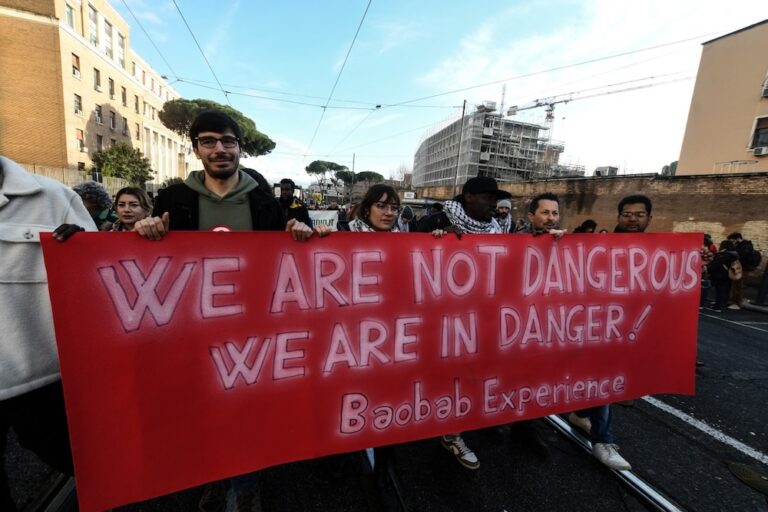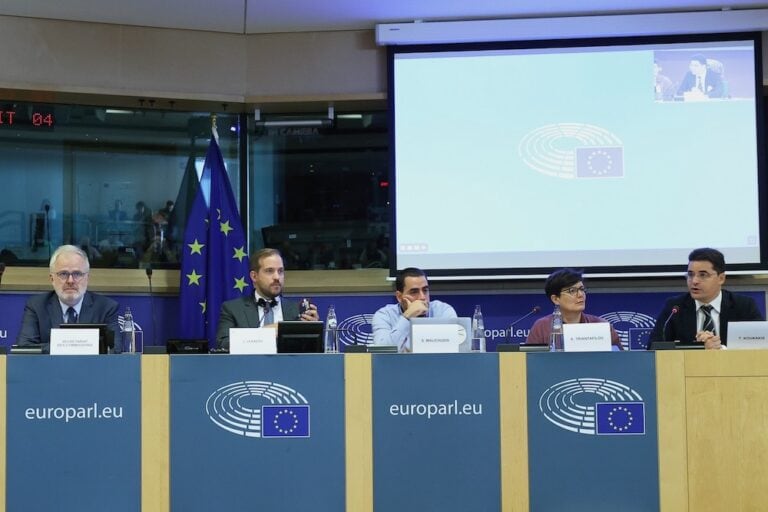(RSF/IFEX) – RSF has warned of the dangers to press freedom posed by two bills that came before parliament on 22 July 2003. The Senate approved the Gasparri bill on broadcasting reform, while the Chamber of Deputies passed a bill supposedly aimed at addressing claims that Prime Minister Silvio Berlusconi’s ownership of a media empire […]
(RSF/IFEX) – RSF has warned of the dangers to press freedom posed by two bills that came before parliament on 22 July 2003. The Senate approved the Gasparri bill on broadcasting reform, while the Chamber of Deputies passed a bill supposedly aimed at addressing claims that Prime Minister Silvio Berlusconi’s ownership of a media empire constitutes a conflict of interest.
“These bills clearly serve the interests of Silvio Berlusconi, whose simultaneous possession of the highest political office and a news media empire is a unique anomaly in Europe,” said RSF Secretary-General Robert Ménard. “They pose a threat to press freedom and pluralism and are a real danger for the autonomy of public television.”
Berlusconi is the richest man in Italy. The news media are at the heart of his economic empire. He owns Mondadori, one of Italy’s biggest press and publishing groups, and Mediaset, which includes three commercial TV stations. At the same time, as prime minister, he has considerable influence over the state radio and TV broadcaster, RAI.
The bill passed by the Chamber of Deputies says the management of a profit-making enterprise is incompatible with public office, but insists that there is no conflict of interest if management of the company is entrusted to another person. Since Berlusconi’s companies are run by family members and associates and Berlusconi’s name does not appear in their organisation charts, there is no conflict of interest, according to the bill.
The opposition refused to participate in the final vote on the bill, which must be approved by the Senate before it becomes law.
Meanwhile, the Gasparri bill on broadcasting reform, which must now go before the Chamber of Deputies, reforms anti-trust restrictions, changes the composition of RAI’s board of governors and allows companies to have interests in more than one news media category. As of January 2009, an individual who owns more than one TV station will also be able to acquire print media outlets.
By allowing more advertising, the bill will increase the dominance of RAI and Mediaset, which together already absorb 93 per cent of the money spent on television advertising. Mediaset alone receives 63 per cent. The reform also envisages the gradual privatisation of RAI, but no shareholder will be able to own more than one per cent of the shares, which will leave the Economy Ministry in control. The bill allows the Mediaset station Retequattro to delay its move to satellite broadcasting until January 2006, instead of January 2004, as required by the Constitutional Court.
Instead of having five members named by the presidents of the Senate and Chamber of Deputies, RAI’s board of governors will have nine members – seven of them named by the parliamentary monitoring commission and two by the Economy Ministry. Lucia Annunziata, the president of RAI’s board of governors, has said she will resign as soon as the bill becomes law.
In a report entitled “A media conflict of interest: anomaly in Italy,” published in April, RSF analysed the consequences of Berlusconi’s conflict of interest for the diversity of news and information in Italy. The country fell to 40th position in worldwide press freedom rankings in 2002.
RSF concluded that the “blind trust” formula was illusory and was in no way a solution to Berlusconi’s conflict of interest. Given the danger that a similar situation could arise in other European countries, RSF recommended that the European Commission examine the Italian case when drafting its “green paper” on media concentration.
The full report is available in English, French and Spanish at http://www.rsf.org and in Italian at http://www.rsfitalia.org.


